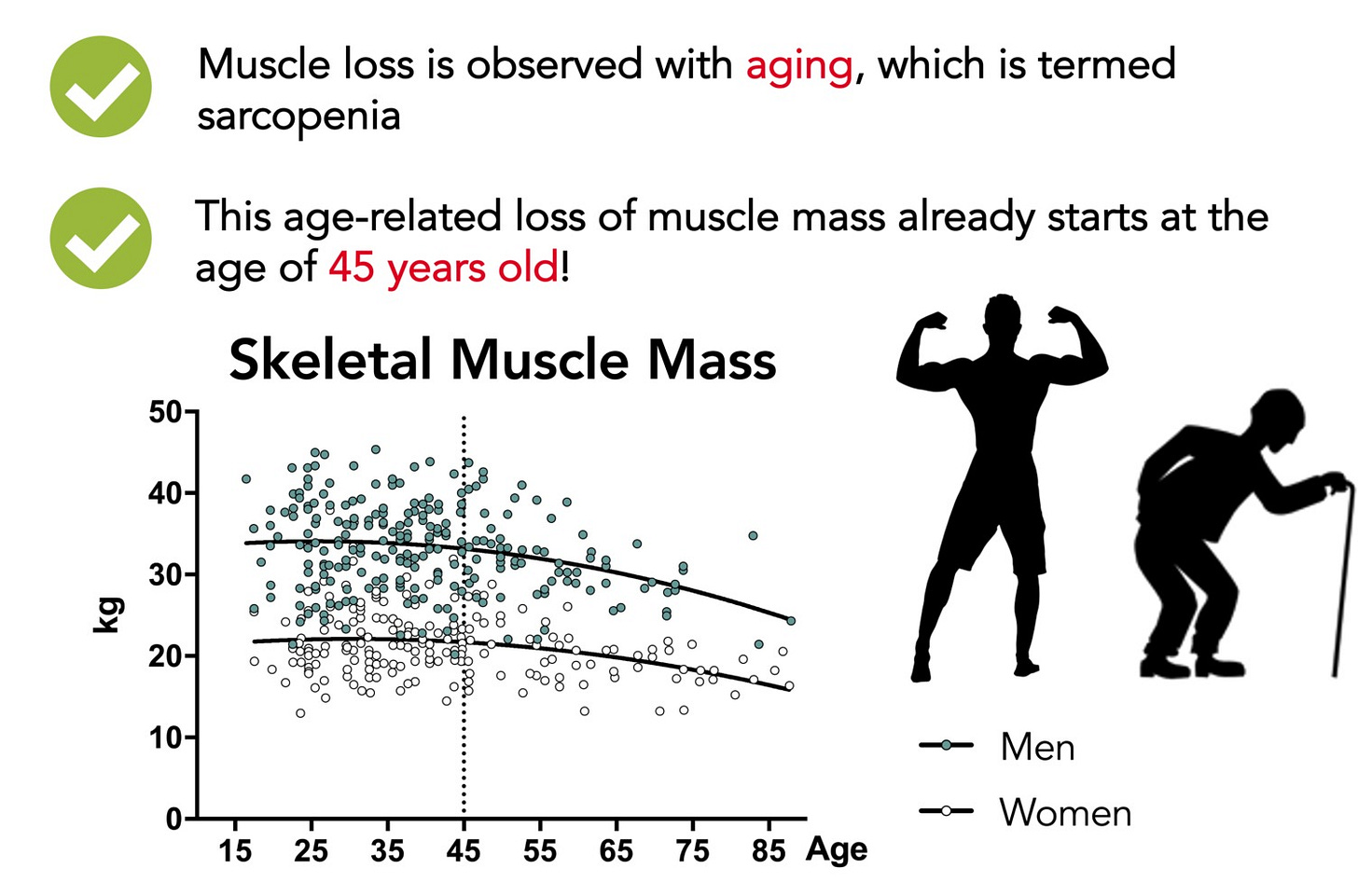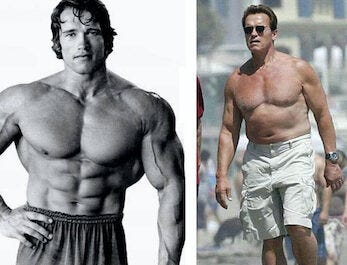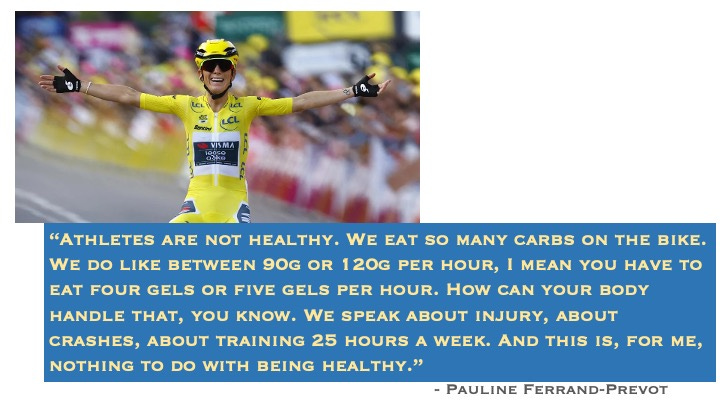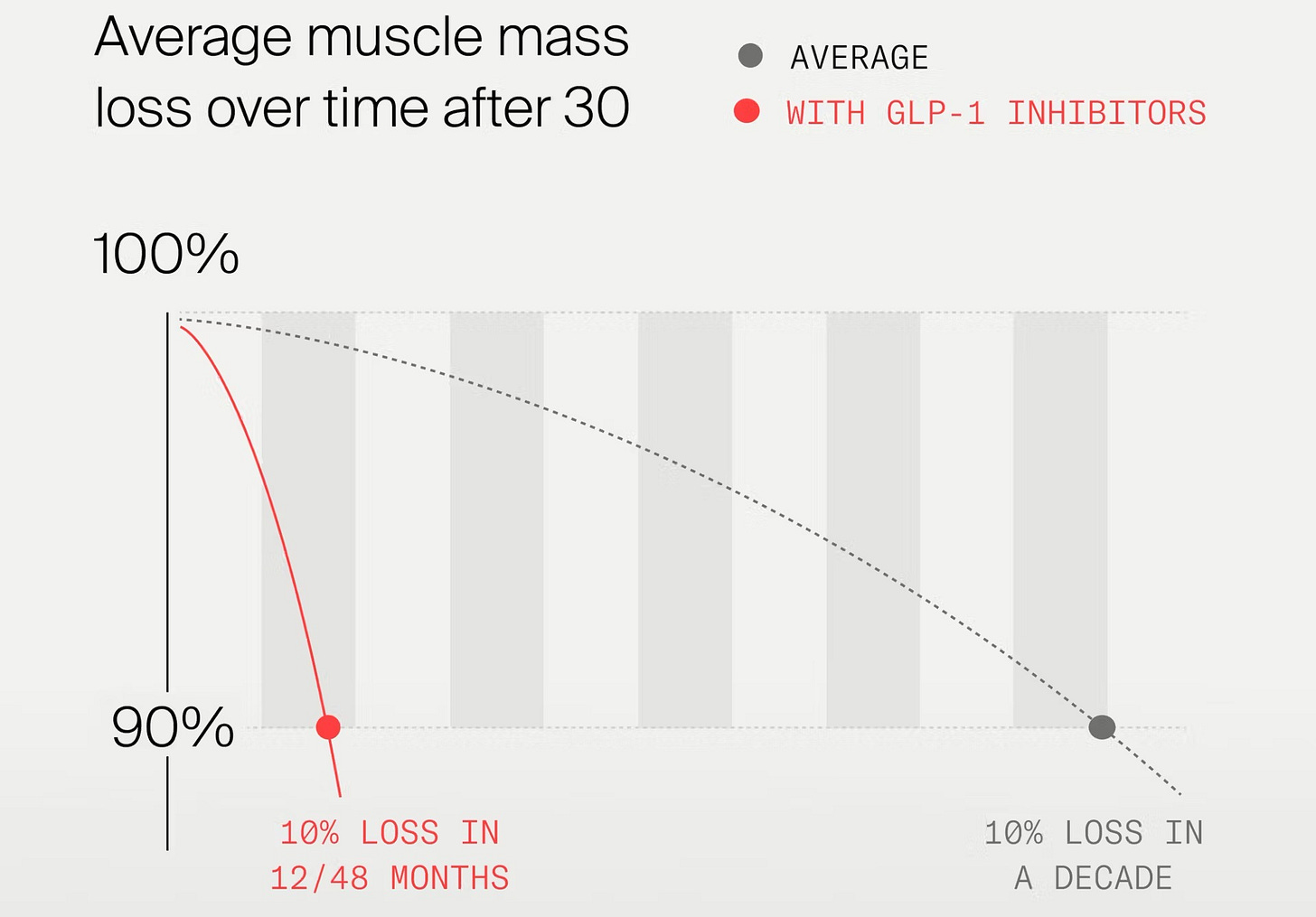Muscle...at the Minimum
Maintaining your strength is the number one way you can slow the aging process...even if you do nothing else
The first time I saw the “Born Weak/Die Weak” meme it was before the word “meme” existed. There was an ad in Muscle and Fitness magazine for a new protein powder. The ad took up an entire 2-page spread (if you’ve never seen a 2-page magazine spread then I don’t know where to start). It looked something like this:
Whoever came up with the design nailed it, as it’s stuck with me for 25 years. I don’t know if the art director was actually into fitness or just making an off-hand reference to Jean-Jacques Rousseau, but either way the point hit home: we have a great deal of control over how we physically prepare to face life. My career as a coach has been spent working across a client’s entire lifespan. I want to build people up when they’re young to increase performance, keep them fit to avoid injury in middle age, and attenuate the decline of their bodies to slow the aging process. This effort might consume a 25+ year relationship with a single client, and I’m only successful if my client doesn’t have to give up the fun shit that she loves to do. There’s a lot of ground to cover here, but at minimum the single best thing I can do is keep her strong.
If You Only Do One Thing
From the 1970’s on, study after study has shown a direct linkage between muscle loss and aging. You’ll hear this called “sarcopenia”, but that’s just us science dorks being showy. For me, “muscle loss” sums it up much better. We’ve been using the results of the Janssen study since 1985 to elucidate the concept of people losing muscle with age. It’s not pretty:
4-6 lbs of muscle loss per decade may not sound like much, but it completely changes your life. Your metabolism drops, you continue to gain weight, and eventually you’ll have to stop doing the activities you enjoy most. Skiing - biking - getting out of a chair - chasing grandkids around - muscle loss eventually takes it all away. And we don’t need any extreme training. My client doesn’t have to lift weights like a bodybuilder; the key is to build a foundation of safe strength training so that he doesn’t get hurt. Injuries from training too hard will just derail his progress.
Getting an early start with strength training is best, but not always an option. By the time I see an unconditioned client in his 60’s, it’s VERY hard to put muscle back on his body. My primary focus at that point is to keep his muscle loss from getting any worse. Unfortunately, I’m often working against his pre-conceived ideas about what healthy looks like.
Cardio Doesn’t Cut It
Yes, aerobic fitness, balance, and mobility are all keys to aging well - but none of it will protect you without muscle. I’ve had countless endurance athletes in my office with V02 Max’s higher than mine whose bodies are completely falling apart. Sadly, these athletes just don’t age well at all. Pauline Ferrand-Prevot just won the Tour De France Femmes, and she describes this concept clearly:
Nothing Drugs Can’t Make Worse
Fortunately for their health, most of our clients are not endurance athletes, but we still struggle trying to maintain healthy muscle as they age. They might think that more cardio is better, or that the number they see on the scale is all that matters. So the task has always been hard enough, and now Semaglutide drugs are making it far more difficult. I’ve never seen muscle drop off clients’ frames this fast. Before 2020, if one of my clients lost 20 lbs of muscle in 8 weeks then one of two things was going on: 1. They were getting a divorce, or 2. They had Cancer. Now with GLP-1, 70% + of their weight loss is muscle. These are the numbers we’re seeing over the last few years…staggering:
We’ve given up trying to get clients to stop using these drugs; the allure of quick weight loss is simply too great. Instead, our job as coaches is to minimize the damage that these drugs do. Even if a client can keep up their strength training (carefully since GLP-1 increases the risk of tendon rupture) and eat plenty of protein (challenging when they have no appetite), they still lose too much muscle on these drugs. Short term weight loss is their focus, and I get that, but their weight loss is coming at the expense of faster aging and worse outcomes down the road. Nobody has been on these drugs long-term yet, so we have just begun to see the cost. If you are interested in pharmacological help, use HRT and TRT to keep your hormones balanced. You’ll feel much better, and dramatically improve your outcome.
Don’t complicate things
It’s simple. Maybe not the implementation, but the advice. If you aren’t strength training: get started and don’t stop. Eat more protein than you think you need (1g/lb is the prescription you’ll hear, but that’s often impossible to hit…if you’re in doubt then just eat more). If you’re taking GLP-1’s: get off, and save your muscle for when you need it most. Every pound of muscle you conserve is one you won’t have to struggle to put back on.
Sam Ditzell
Austin Longevity Clinic







Thanks, Sam. Important info, no matter what age or stage a person is in.